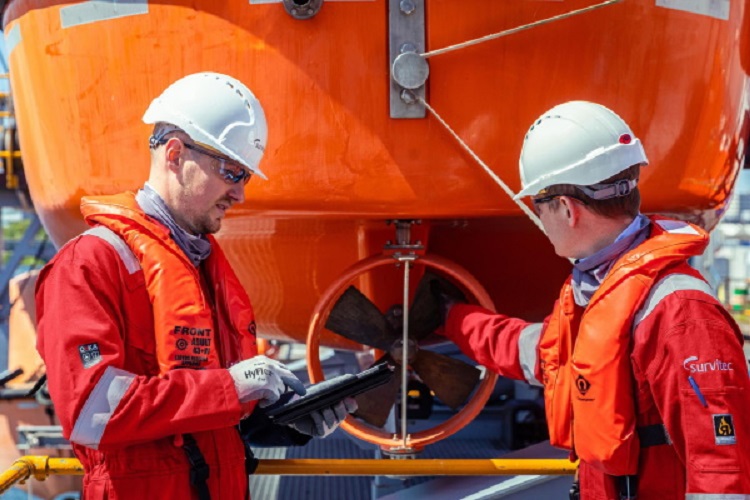Offshore drilling operator Valaris has confirmed it has renewed, for an additional three years, the service agreement it has in place with Survival Technology solutions provider Survitec championed by a customer-centric approach.

An extensive network of more than 400 service stations around the world combined with streamlined lifesaving appliance maintenance were key factors in the decision by Valaris to remain with Survitec.
The master service and supply contract, originally signed in 2016, covers the annual and five-year inspection, servicing, and maintenance of LSA, including lifeboats, davits, and fast rescue crafts across Valaris’ global fleet of 11 drill ships, 5 semi-submersibles and 36 jack-up rigs.
“This significant development is indicative of the global energy sector’s preference for a company capable of servicing third-party, multi-brand safety and survival equipment through a single point of contact,” said Jim Cook, Head of Business Development – Energy, Survitec.
“We are seeing a marked increase in operators looking for more customer-centric service arrangements, so we are obviously delighted that Valaris – the world’s largest offshore drilling company – has renewed. It shows Survitec is the valued and trusted partner to the offshore oil and gas industry,“ said Cook.
Survitec’s ‘single point of contact’ business model essentially rolls four functions into one: technical services, customer services, operations and administration.
“Ultimately, offshore oil and gas operators benefit from a single service provider without the administrative burden and costs associated with contracting multiple service partners,” said Cook.
The agreement comes at a time when the energy market is experiencing a sudden rise in oil prices with demand far exceeding supply.
Jeff Walker, Sales Manager – Americas, Survitec, said: “With an increase in the number of projects coming on stream and vessels returning to service, offshore oil and gas operators do need to ensure their lifesaving appliances are regularly inspected, serviced and maintained, with up-to-date certificates.”